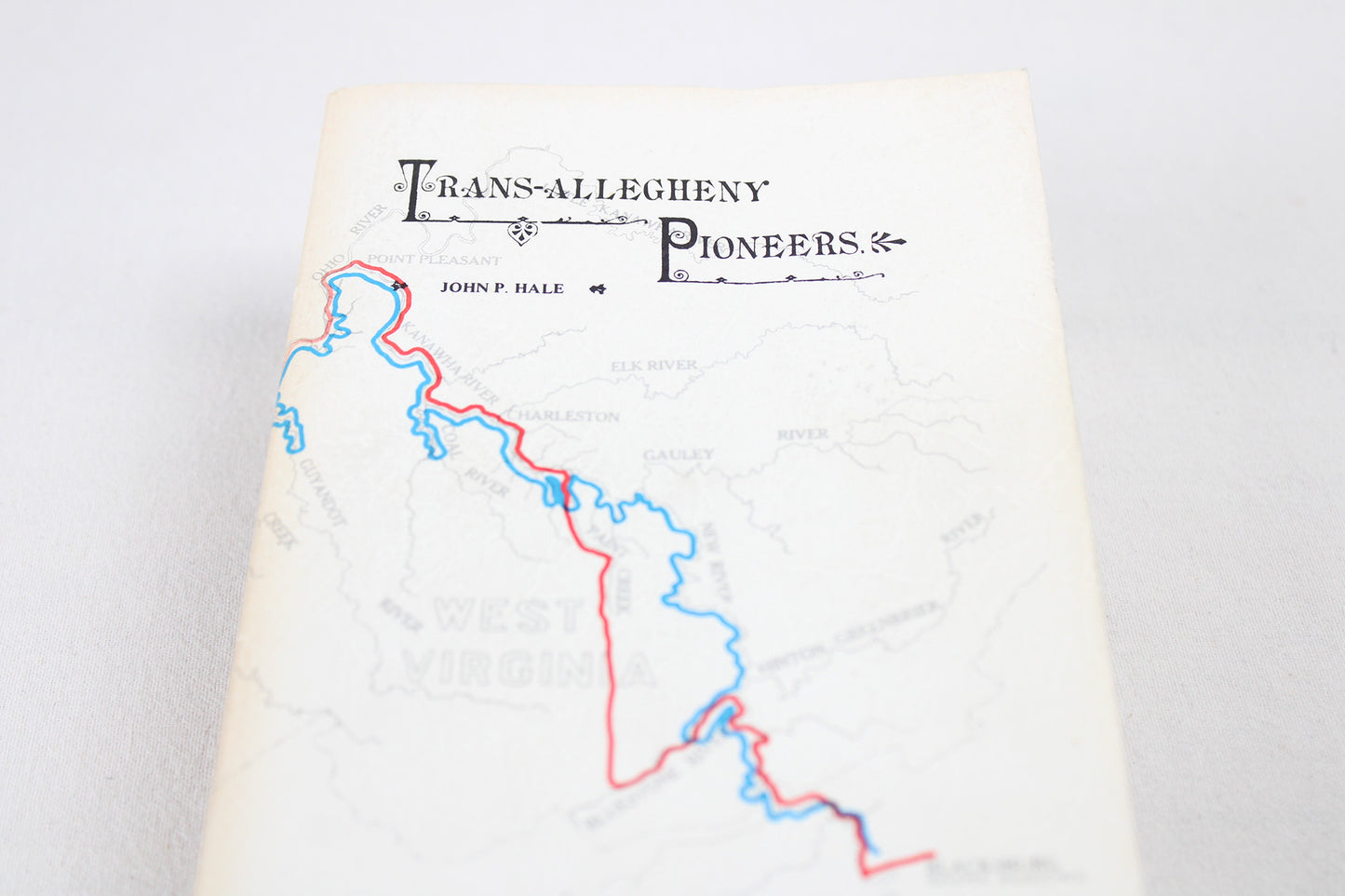The Regionals
Trans-Allegheny Pioneers, by John Hale
Trans-Allegheny Pioneers, by John Hale
Couldn't load pickup availability
MID-ATLANTIC / ATLANTIC SOUTH / THE SOUTH.
History.
When most Americans think of the “frontier,” they think of the American West. But for the early European settlers, frontier meant western Massachusetts at Deerfield, upstate New York’s Cherry Valley, the Wyoming Valley of northeast Pennsylvania, the Mid-Atlantic and Midwest regions of the Allegheny Mountains, the New River and Ohio River Valleys, the entire state of what is today West Virginia. The latter is the setting in which Trans-Allegheny Pioneers unfolds across the mid-late 1700s. A classic if largely forgotten local history, Trans-Allegheny Pioneers follows the Ingles and Draper families on their pioneering migrations into the interior, the chief frame italicizing the life story of Mary Draper Ingles. Captured by the Shawnee in a bloody violent raid on “Draper’s Meadows” in 1755 (the Shawnee a mobile tribe who ranged across all of America’s Midwest and upper Southeast regions), Mary’s trek “west as a captive of the Shawnee” and escape back east “with the Old Dutch Woman,” makes it obvious why. It is quite the tale, author John Hale extending the history to include the intrepid Daniel Boone’s steps westward during the second half of the 18th century. In summary, Hale’s original 19th century volume starts off like this: “Historical Sketches of the First White Settlements West of the Alleghenies … Wonderful Experiences of Hardship and Heroism of Those Who First Braved The Dangers of the Inhospitable Wilderness, and the savage Tribes that then inhabited it.” Very much a product of the 1800s (and not to be outdone by the North Star of America itself—the Declaration—with its subhumanization of the “merciless Indian Savages”), we have to be careful not to contextualize this history from within our modern frame. The frontier, whether in the Kanawha, Gauley, or New River regions of West Virginia, or anywhere else Europeans encountered Native Americans (which was every push west from the Atlantic coast onwards) was one of violent misunderstandings, indiscriminate homicide, simmering resentment, leery trade and barter, as well as occasional amiable coexistence. In the end, conflict, a raw fearful self-preservation, and hatred for the “other” more often won out over coexistence of any sorts. But the stories like those found within Trans-Allegheny Pioneers of persevering under a hard exposure to the elements alongside threats human and natural beyond what any modern American’s mind can comprehend is an undeniably tight strand in our national DNA. So is the bloodshed. It is all those things at once, for better or worse, and should be understood as such … [Condition: Used Very Good — This 1970s edition, edited by Harold J. Dudley, finally added the full index that the unique detail of the original deserved. There is some slight creasing to the cover and just a touch of age coloration on the spine, but it leads to a nearly pristine interior, including a fold out map of Mary Draper Ingles’ incredible journey west as a Shawnee captive and back east as an escapee to today’s West Virginia.]
Condition: Used Very Good.
Nonfiction / History.
John P. Hale (Harold J. Dudley, ed.).
Roberta Ingles Steele, 1971 (originally published: 1886).
Softcover, 422 pgs, 5.5 x 8.5" / 1 lb 9 oz
1 in stock
Share
























